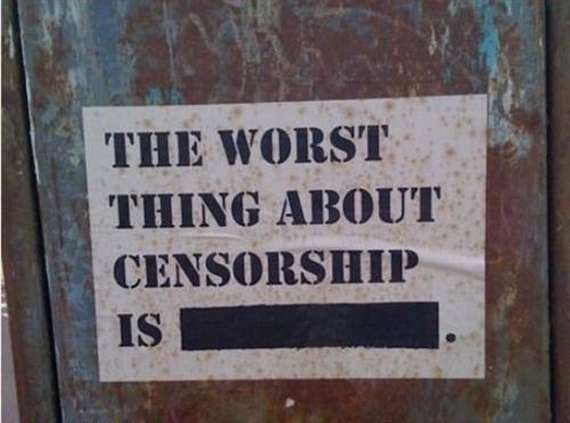
Why did Enlightenment fail?
According to modern philosophy and modern academia the goals of Enlightenment was never realized – the foundation of god, religion, ethics, and especially, a political system, in reason. The idealist might insist that the Enlightenment isn’t without its virtues – that it freed civilization from the shackles of the church, and unleashed a new age of man. However, the result is merely a new election, a new ideology. Instead of God as tyrant, we have the Rational Tyrant. The dogma changes its clothes, but the incantation retains the same syllables, and the stench of the absolutist lingers in propaganda: the “right way,” the “correct method.” Yet, during the baptism of reason at the Hanging Gardens, we also sacrificed subjectivity: the marginalization of the passions and the emotions and intuition.
A general understanding of this topic relies on the context of the times, which was the 19th century, the subsequent era after the Enlightenment (dating from the publication of Hobbes’ Leviathan in 1651 to Thomas Paine’s Rights of Man in 1792).
Ambivalent 19th century thinkers such as Hegel, Schopenhauer, Nietzsche, Marx, Darwin and Dostoyevski abandoned the myth of the intellectual progressivism, because of the corrosive effects of rationalism, yet they retained faith in life.
The results of the 19th century thought was a composite of both the dominant optimism, the result of the growth of industry and democracy, and an emerging pessimism due to the failure of rationalism in social change, whether solutions to the problems of society was possible at all.
Although the next generation of thinkers such as Georg Simmel, Max Weber, Henri Bergson, Emile Durkheim, Samuel Alexander, Edmund Husserl, and Sigmund Freud shared in the Weberian “disenchantment of the world,” they also sought to save civilization from that fate.
Specific instances of this disenchantment: the decline of a stable justification for life, and the resulting dispersal of meaning and inspiring despair, in the fragmentation of social cohesion, and schisms from cultural variety and disunity. This generation, initially, belonged to the progressivist camp, and within the paradigm of Darwin, they purged the remaining traces of idealism through the rubric of naturalism, realism or empiricism. Soon enough, progress itself was questioned, and once the cat escaped from the bag when objective meanings were found wanting, they realized the all-too-grave consequences for society and the individual.
Of course there was a noble struggle to restore prominence and absolution to culture and society in order to return it to the Throne of Meaning. This effort ended in failure, and the result is the dispersed and specialized thought of the 20th century, where there is no longer any general discourse, but little and segregated discourses, tailor-made for the specialist. The criticism worked too well, making a reconstructive project impossible.
Moreover, the modern developments in science has led to the decline of optimism in rationalism. In physics and mathematics, two of the most advanced forms of western science, have themselves become paradoxical. In other words they are now at the state where paradoxes are generated according to reason. Kant already highlighted the “ineluctable limits” of reason, but thanks to those comfortably in the grip of enlightenment, the majority of intellectuals and the masses remained positivistic. That means such aforementioned limits of reasons were immaterial until they came from the sciences.
During the early 20th century paradigm shifts in science and mathematics finally caught up with Kant: Heisenberg in physics and Godel in mathematics. Heisenberg’s principle of interderminacy announced the limitations of our ability to know and predict the physical state of affairs at the quantum level of reality, where chaos is the name of the game. Godel’s conclusions have a greater impact, given the sacred cow status mathematics has enjoyed for the majority of the history of western philosophy. In each system of mathematics, there are statements/propositions that cannot be proven within the system, leaving us with the unacceptable flavor of incompleteness. Then our next step in thought ought lie with the recognition of the inherent paradoxial nature of reason.